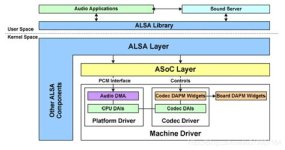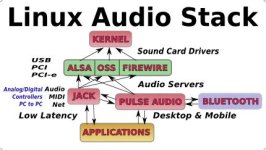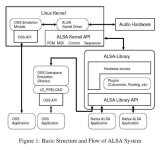No argument from me on the changes in sound when you change settings in audio playback software. Learned that 20 years ago when playing around with some pretty simple gear on my desktop computer. It's been true on all playback software that I've used since, including Moode.
It would be easy to disagree if you've never spent any time playing with the settings.
Will say that some settings benefit some systems more than others. My current main amp/speaker combo leans towards the warm side of things and increasing buffer size or changing output mode to direct steps it too far into warm territory. Yet on another system it's just wonderful.
CPU performance seems to sound better on all the systems. So it's worth experimenting.
But the bottom line is you can make positive changes pretty easily. Thanks for pointing out so many of them.
It would be easy to disagree if you've never spent any time playing with the settings.
Will say that some settings benefit some systems more than others. My current main amp/speaker combo leans towards the warm side of things and increasing buffer size or changing output mode to direct steps it too far into warm territory. Yet on another system it's just wonderful.
CPU performance seems to sound better on all the systems. So it's worth experimenting.
But the bottom line is you can make positive changes pretty easily. Thanks for pointing out so many of them.
The purpose for the buffers is to prevent the audio from dropping out, it doesn't modify the frequency response in anyway. Think of the buffers as data buckets, the CPU will periodically keep topping up the buckets to keep them full. The contents of the buffers are simply pulled from storage media like an external disk drive or streaming site and then stored in RAM for the audio subsystem to access.
The CPU Governor has absolutely no interaction with the audio stack, the governor maintains the CPU frequency scaling to ensure the CPU is running optimally depending on system load, so it increases the frequency with a higher load and decreases the frequency on lighter loads. So its not possible by fiddling with the cpu scaler to modify the audio quality.
Changing these low level system parameters cannot possibly change the audio quality. I suggest reading about basic computing architectures before making unfounded statements about what parts of an operating system or a CPU can actually change the audio quality.



The CPU Governor has absolutely no interaction with the audio stack, the governor maintains the CPU frequency scaling to ensure the CPU is running optimally depending on system load, so it increases the frequency with a higher load and decreases the frequency on lighter loads. So its not possible by fiddling with the cpu scaler to modify the audio quality.
Changing these low level system parameters cannot possibly change the audio quality. I suggest reading about basic computing architectures before making unfounded statements about what parts of an operating system or a CPU can actually change the audio quality.



Last edited:
@Indiglo
They do effect sound quality, and quite dramatically so.
As far as I can tell it's more about how timing of harmonics are affected by buffer sizes.
As an avid amplifier designer I know that harmonics and how well they are preserved from the recorded event is THE most important issue to handle when designing a top level amplifier.
Please try, and get some own experience before telling someone that it can be, when my experience is that it is unquestionable that they have an effect.
They do effect sound quality, and quite dramatically so.
As far as I can tell it's more about how timing of harmonics are affected by buffer sizes.
As an avid amplifier designer I know that harmonics and how well they are preserved from the recorded event is THE most important issue to handle when designing a top level amplifier.
Please try, and get some own experience before telling someone that it can be, when my experience is that it is unquestionable that they have an effect.
I've got decades of experience working in the computer industry and fully understand that, in theory, these changes can't modify the sound quality one bit. That's why I was so baffled 20 years back when changing some of the settings did make a difference.
Doing searches on the subject didn't bring up any explanations. That only makes it weirder.
Sit down with a great system and play with some of the settings. Listen. It might surprise you.
And if it doesn't, that's fine. We all come into this hobby from a different angle.
Doing searches on the subject didn't bring up any explanations. That only makes it weirder.
Sit down with a great system and play with some of the settings. Listen. It might surprise you.
And if it doesn't, that's fine. We all come into this hobby from a different angle.